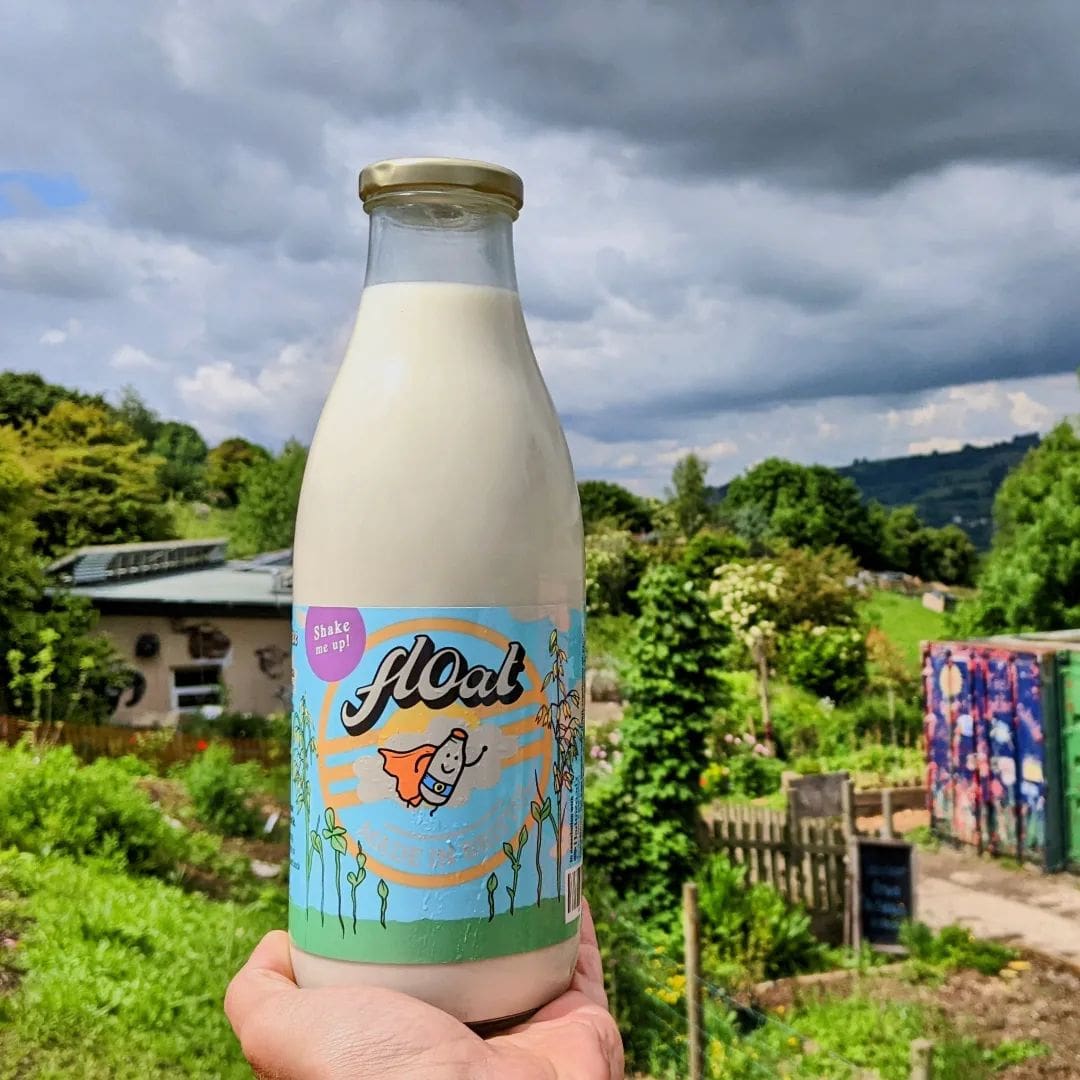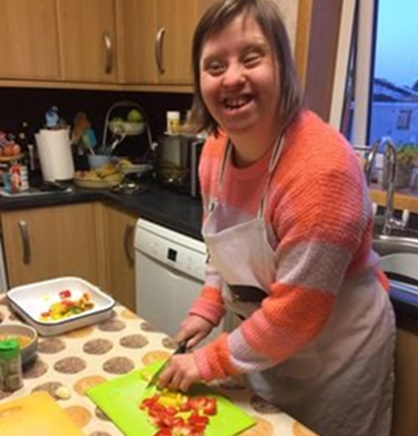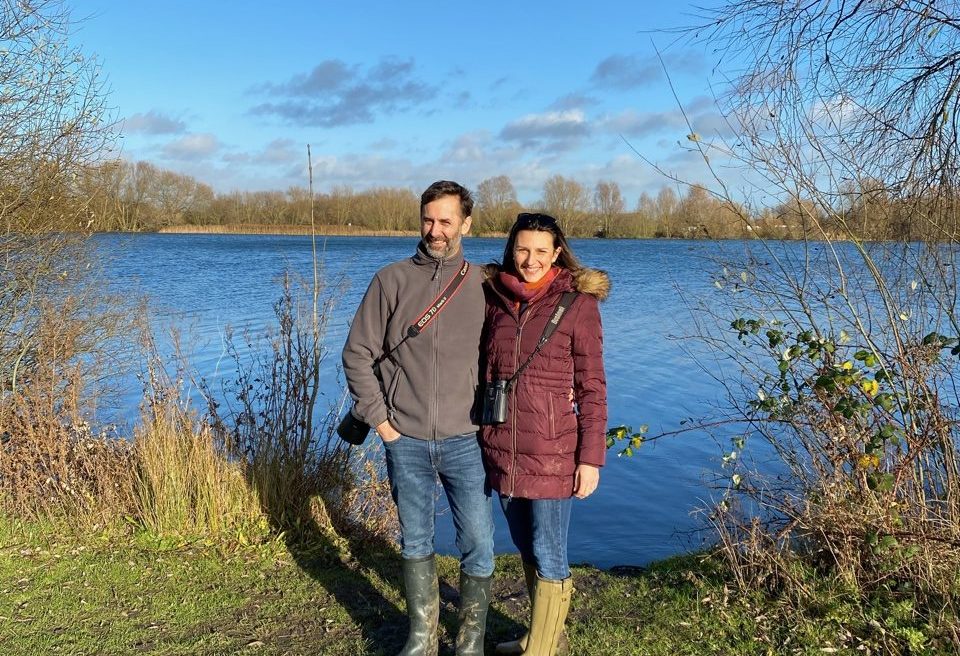How do entrepreneurs design their businesses to help meet the needs of all people meet the needs of people without harming the planet? This was the subject at our latest Environment Talks, where Circular Start Up participants discovered Doughnut Economics with Erinch Sahan, Business & Enterprise Lead at DEAL.
Here are some of our key takeaways from the session:
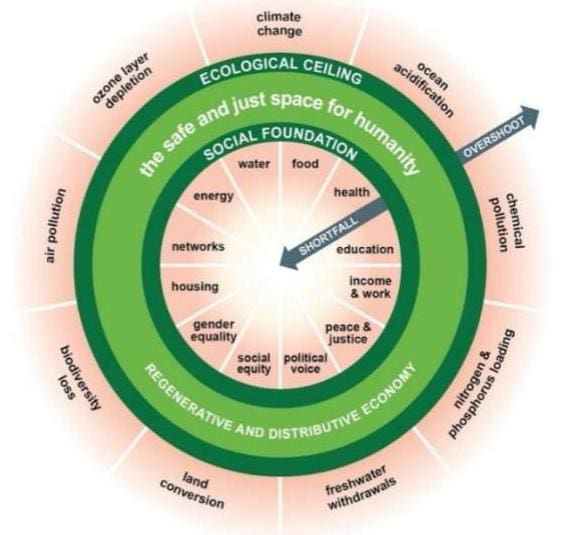
Image credit: Doughnut Economics Action Lab
What is Doughnut Economics?
Doughnut Economics is a compass for human prosperity in the 21st century. It utilises a visual framework for sustainable development, combining the concept of planetary boundaries and the resources needed to fulfil humanity’s basic needs, creating a safe operating space for humanity, without placing stress on the earth’s resources
A shift in mindset
To achieve this, Doughnut Economics proposes a new mindset that’s fit for the current climate crisis, where instead of continuing to use degenerative and divisive models of the 20th century, humanity embraces regenerative and distributive business models instead.
What happens when business meets Doughnut Economics?
To reorientate business and economics to deliver more prosperous lives, while remaining within the planetary boundaries, organisations will fundamentally transform their operations by embracing practices like zero-waste production, the circular economy, paying a living wage, or sharing decision-making with workers. Some of the best examples are when regenerative and distributive practices come together, like communities creating renewable energy cooperatives to achieve affordable, renewable energy.
How do we redesign business for Doughnut Economics?
To follow the Doughnut, organisations need to innovate and redesign their approach to growth, by harnessing deep design as a tool to innovate new ways of thinking.
Deep design thinking exercises support you to:
- Design to align processes with the purpose
- Design to enable partnerships and engage stakeholders
- Design to lock in legacy and protect mission
- Design to channel investment into bold ideas
Activity:
Practice this deep design brainstorming process to enable BOLD solutions across the business model.
- Purpose – What does it look like if you write your business’ desired purpose from a Doughnut rather than a financial perspective?
- Networks – How do you achieve long-term committed partnerships with other suppliers and other commercial partners? How do you and your network drive transformation?
- Governance – How will your governance navigate trade-offs between ecological, social and financial goals? Who is on your board and who represents the planet?
- Ownership – What expectations do owners have for the ecological, social and financial performance of the business? Which stakeholders should become part owners? How should voting rights be distributed?
- Finance – Should margins adapt to encourage bold ideas? How can reinvestment be enabled? What is a fair return for investors?
Thank you to DEAL and Erinch Sahan for sharing your expertise with our entrepreneurs.
Want to stay connected to an entrepreneurial community that strives for a circular economy? Learn more about what we offer at Impact Hub King’s Cross through coworking, startup programmes and partnerships.
In this mini blog series, we catch up with some of the 2019 alumni from Feeding The City Start Up. Supported by Bank of America, this programme enabled aspiring entrepreneurs to start a sustainable food business. 3 years down the line, they share where they are now on their business journey.
Joshua is the founder of Tiger and Float, which provides a local and sustainable milk alternative in Bristol. After developing an initial product back in 2018, he decided to develop the business through Feeding The City Start Up. Here, he was able to learn how to balance decisions that work both for the business and the environment.
An organic growth
Since completing the programme, Tiger and Float has been establishing itself in Bristol, providing dairy-free mylk to local shops, cafes and homes. Now working out of a unit, the business has been steadily moving forward, as Josua explains:
‘We’ve just been growing slowly and organically: accruing slightly more customers, upgrading how we make the mylk, and taking on a few people.’
The team has in fact grown from 2 to 5 people, on a mix of full and part-time.
As an environmentally-focused business, one of Joshua’s main aims when setting up was to encourage the use of reusable packaging. To implement this, Tiger and Float provide a subscription scheme for households, while shops and cafes put a deposit on the glass bottles. The outcomes so far have exceeded expectations.
‘Last year’s figures showed a 98% return rate on bottles to people’s doorsteps, and 99% return rate to cafes. We hardly ever have to buy a new bottle’.
Testing what floats
While the values of the business remain the same, a significant change that has been made is to the product itself. While the original idea was to develop a dairy-free mylk brand using tiger nuts, over time the viability of this ingredient was put into question. ‘The whole thing about it was trying to grow this new kind of milk, which was going to be ‘the next ‘one’. But that didn’t turn out to be true, because the reality is that while it did make it taste pretty good, it never tasted as good as oat milk.’ The other challenge was finding people to grow it on a commercial scale, because tiger nuts are not commonly used in the UK.
In the end, the business shifted its core ingredient from tiger nuts to oats. ‘It’s actually a more complicated process to make oat milk. But now we have the basis of what we do, all the sustainability is baked in because oats are grown in this country. We were able to collaborate with farmers here and have all our ingredients sourced from within the UK. So this serves our mission of doing a localised milk alternative.’
Building relationships
A pivotal moment was establishing a relationship with Hodmedods, a UK-based grains supplier. They put Joshua in touch with Turners of Bytham, who grow a unique variety of grains using pioneering organic techniques. This led to a successful collaboration in which Tiger and Float source their ingredients, while Joshua and the team trained the organic farmers to make oat milk.
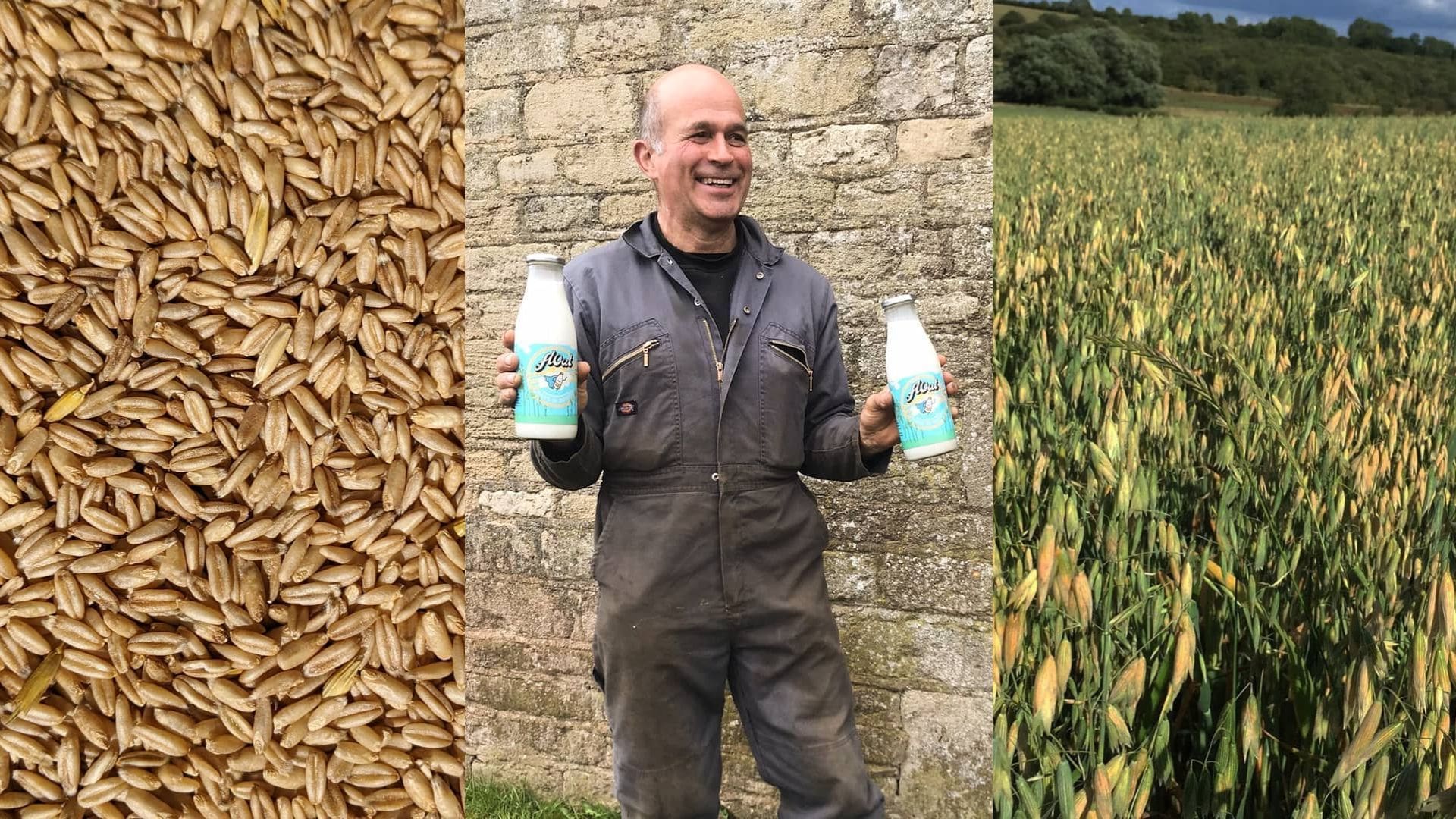
‘We’ve started the beginning of a network of float being made locally. That’s one of the best things about it, we have this direct connection with the origin of our product.’
When it comes to relationships, like fellow FTC alumni, Joshua still keeps in touch with the Impact Hub Inverness team, who delivered expert workshops on the Feeding The City Start Up programme. ‘Brian and Polly were especially really good, from helping to focus on on viability, to testing and working with your limitations.’ Joshua still occasionally calls the team, and they came down a couple of times to do some sessions.
Covid response and silver linings
Many businesses also adapted as a result of the pandemic. So how did Covid-19 affect Tiger and Float? The small drinks business was able to promptly react to serve the local needs. They were able to quite quickly shift to doing more home deliveries, as that was already part of the mix.
‘During the COVID pandemic, we stepped up a gear, because we were providing food for the local community and people who were locked down.’
One unexpected benefit that Joshua encountered was an improvement in working hours. ‘I thought it was just part of the job of being a milk person to be an early riser. So I kind of knackered myself out and was not really hacking it too well. However, when COVID hit and I knew everyone was at home anyway, we started to deliver later’. They kept this going because they found a niche of people who work or stay at home. ‘That’s actually helped make it right, but I’m not sure I would have tried that if it wasn’t for COVID.’
‘I suppose at a certain point, the business does need to match the kind of lifestyle you want.’
Despite this, there are still ongoing challenges that Joshua faces, as the owner of a small business. Alongside cash flow issues and staying on top of invoices, one of the most difficult aspects is maintaining the work with a small team of part-time employees, who aren’t relying on the business as their main income. ‘I can’t make people to work a certain day, I have to accept it: that’s just what comes with the territory. But that means that I have been covering a lot of shifts.’
What’s next?
Looking ahead, Joshua is planning to do some market research in the local area, to get further insight into the cafes’ operations and guide the next steps for the business. ‘The vision is to have Bristol-made oat milk in most of the independently run cafes’.
Our main selling points is that we’re zero waste, made in Bristol, and can be traced to the source. But still, the main thing is that it tastes as good or better than the main brands. That’s why we’re continuing to assess and tweak the process to make it better – but it’s never finished.’
Learn more about Impact Hub King’s Cross helps entrepreneurs to start and grow their ventures through business support programmes.
In this two-part blog series, we catch up with some of the 2019 alumni from Feeding The City Start Up. Supported by Bank of America, this programme enabled aspiring entrepreneurs to start a sustainable food business. 3 years down the line, they share where they are now on their business journey.
Clare and Karen met while working as occupational therapists up in the Highlands, Scotland, and supporting adults with learning disabilities. However, pushed by dissatisfaction with their day jobs, they decided to consider new career avenues.
This brought them to our Feeding The City Start Up ideation workshop to explore their ideas, and finally onto the programme itself. They are now the founders of The Cooking Club, a social enterprise running cooking groups for people who want to learn more about cooking and socialise with others. Tailoring their classes to adults with disabilities, they aim to make cooking accessible to everyone.
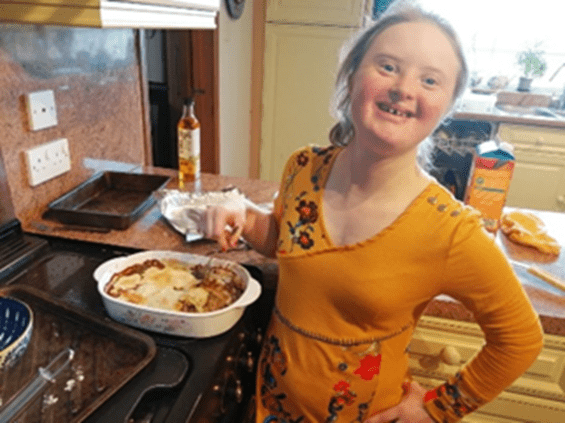
Lessons for launch
Reflecting back on how Feeding The City shaped this journey, the business support helped build their foundations. They benefitted from resources and templates, which they still use today. ‘Having registered the business about six months after the programme, we were able to go back through all the information we’d been given, legal structures and all that stuff, because that’s a bit of a minefield.’ But beyond the practical challenges, they were able to overcome some personal barriers.
‘I don’t think we’d have ever done it without a push, we’re not confident people, and we’re not business people, so we definitely needed somebody to say, ‘just try it, for goodness sake!’
Through the programme they received expert workshops from our friends at Impact Hub Inverness. As well as being geographically close, they are still able to benefit from the relationship: ‘We’ve gone back to Polly and Brian from Impact Hub Inverness for advice at times. And they’ve been really, really helpful.’
The importance of a peer group is also recognised. ‘I think we’ve been inspired by stories of others on the cohort. We haven’t directly kept in touch with them, but recently I opened up a magazine and there was one of the girls from our group! So yeah, it’s good to hear that folks have kept going at it.’
A journey of surprise
Clare and Karen have been inspired by the people they work with. ‘We’ve made a whole range of food with people with learning disabilities, things that you wouldn’t expect people would be up for.’ One lesson at a time, they’ve also inadvertently created more than cooking skills. ‘We found out that participants have independently linked up through social media channels. They’re not always close to each other geographically, but they’re keen to keep in touch.’
‘There is a sense of community for them, and just to think that you’ve been able to set that up feels really positive.’
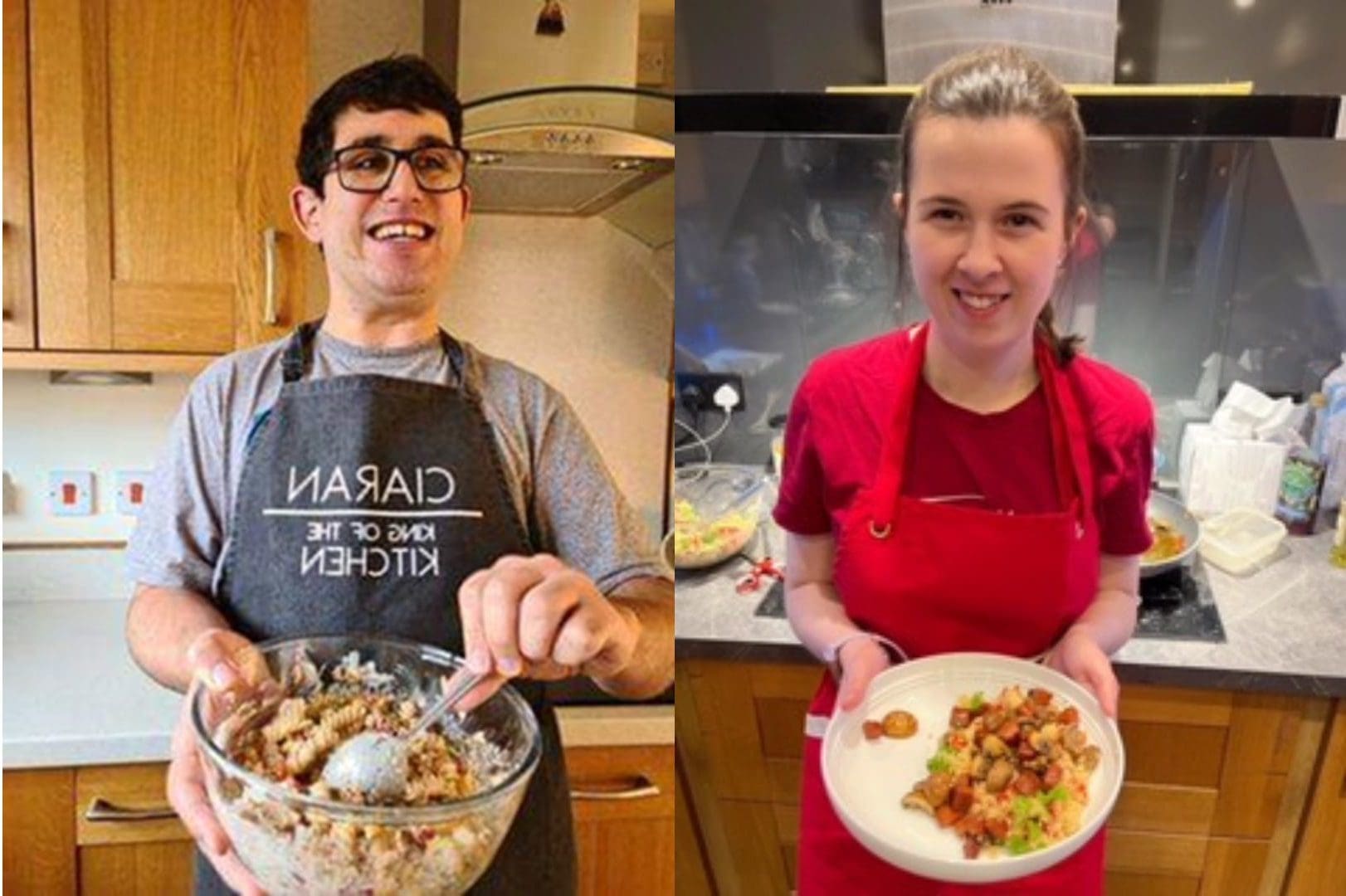
Evolving and adapting
When they applied for the programme, Karen and Clare planned to do meal kits for people with disabilities. However, the pandemic created an opportunity to pause and realign.‘We decided not to go back to meal kits because probably our hearts weren’t in it, and it wasn’t really the route we wanted to go down.’
Instead, they shifted their focus to supper clubs, which they had been doing in-person before the pandemic. ‘Generally, folks with learning disabilities have a lot fewer opportunities to meet and mix with other people. And then the pandemic hit, so they were going to be even more isolated.‘
To continue bringing people together through cooking, they tested free weekly online classes in April 2020. It took a while to build up, but following the initial success, they made their service a monthly subscription running twice a week. The virtual benefits also suit the Highlands, as people tend to live spread out so it avoids long-distance travel.
‘We’re still amazed that we’ve managed to do it. The idea that we’ve kept the classes going this long.’
Ingredients for impact
One of the participants’ mothers shares: ‘The skills my daughter has learnt at the club have definitely helped with her work placement and in turn secure a volunteer role in Raigmore Hospital. The Cooking Club has helped promote her independence and living skills and since she now enjoys cooking for the family, this has boosted her confidence and self-esteem. It was a lifesaver during the lockdown as it added structure to her day and enabled her to socialise, albeit virtually, when she was cut off from all her friends.’
Since the pandemic hit, they have run:
- 84 Virtual Lunch Clubs
- 67 Virtual Supper Clubs
- 8 Zoom Virtual Cooking Club sessions for autistic people
- 8 Junior Cooking Club – sessions for children
- 4 sessions for Impact Hub Inverness
- 1 session for Youth Group, Police Scotland
Cooking challenges
Online classes does still present its difficulties. ‘The participants either couldn’t cope with the screen so well, or they missed socialising and meeting people. You don’t get the same kind of chat that you would in a room.’
Another challenge The Cooking Club has encountered is attracting different audiences. Although they started off targeting people with learning disabilities, they are keen to expand that out. ‘It seems that people without learning disabilities don’t feel part of our community, so they don’t come along. We would prefer to be inclusive and have everybody join the same classes. But it doesn’t seem to work like that in reality.’
What’s next?
‘We recently applied for funding for the Communities, Mental health & Wellbeing Fund, to do two specific things. One is a class for autistic people, because we feel that’s a group of people that would maybe benefit from really structured recipes and classes. The other thing we want to get back to are face-to-face activities. But because we would need to be more socially distanced and have everyone cooking their own food, we need funding for more equipment.’
For people who aren’t necessarily academic, they’ve been able to get educational awards by coming to the classes. So Clare and Karen are looking to develop youth engagement in their cooking classes through initiatives like the Duke of Edinburgh Award, or preparing teenagers who are leaving home.’
Lastly, there are longer-term goals to secure their own premise where they can flexibly run their classes and expand to more holistic services that support adults with learning disabilities.
Learn more about Impact Hub King’s Cross helps entrepreneurs to start and grow their ventures through business support programmes.
How can sustainably-driven entrepreneurs join the circular economy?
For Circular Economy Week, we discussed this with entrepreneurs at our recent Environment Talks event, as well as circular businesses from our ASSETS programme.
Here are our 5 key takeaways on the common challenges and solutions for circular-driven businesses:
Challenge #1 – Responding to global issues
Climate change is a global issue with multiple layers and complexities, such as carbon emission rates, deforestation and rising sea levels. It can seem difficult to address big global challenges and economies from where you are.
Solution – Keep it focused
Circular economies start best when approached at a small local level. Begin by understanding the needs of your local community and adapting your business idea accordingly. This means you’ll want to keep your solution narrow and focused.
“Ensure you are solving a real problem and not creating one. Look where you personally can add the most value and create the greatest impact for you and those you can help. Think big but start small.” – Jason from TracoUK.
This approach should also apply to the value chain of your business. Map out the different components in your circular business model and tackle one area at a time.
Challenge #2 – Networking
If you’re new to business or circular practices, it can be tricky to know the right people to connect with for guidance, exchange ideas, collaborate and reach customers.
Solution – Know your tribe
Start by exploring who you already have a connection with – LinkedIn is a useful platform to do this. Here you can also find and reach out to experts in the sector-specific to your business or mission.
Attend in-person events related to the circular economy and sustainability. As well as familiarising yourself with the ongoing work on circular models, you’ll probably meet like-minded individuals and businesses.
Approach and engage with local cafes, shops, farmer markets, and community initiatives. As well as building your connections, this will help you with your research and improve your business solution.
“We’ve started Amplify Goods as a circular enabled business, and with collaboration, it will become an increasingly meaningful part of our circular economy.” – Pasha from Amplify Goods.
Lastly, keep an eye out for business support programmes, such as The Circular Start Up. As well as offering valuable upskilling and knowledge, it provides a peer group to grow with.
Challenge #3 – Costs of testing phase
Testing your product or service is one of the key elements in any business, as it helps validate the efficiency of your solution. However, most entrepreneurs seem to face an economic barrier to kick start the validation phase.
Solution – Think creatively
If you are facing barriers due to lack of space, consider alternatives in your local area such as community halls, pop-up stalls at local markets, or sharing space. Explore less obvious opportunities which could work out through negotiations.
“Some spaces are empty depending on the time of day. Don’t be scared to ask if there’s an opportunity of sharing or collaborate to keep costs down. Be a bit cheeky!” – Lucy from The Breakfast Collective.
There are also ways to be resourceful when it comes to collecting feedback on your product or service. If for example, you’re working on sustainable clothing, you could find relevant audiences and present your prototype through charity shops and swap events.
Challenge #4 – Funding and investment
When kick-starting or growing a business, funding is one of the most common barriers.
Solution – Find your match
Angel investors are a good option, as they are often more dependable and secure than loans or personal funding. They can be involved at different stages of the business and there is scope for stability.
These investors can be found through professional networks such as LinkedIn. The key here is to find the right match.
“It’s just like dating, it may take many meetings and conversations, but it’s worth taking the time to find someone who is truly aligned with your idea and circular mission” – Hasna from Save Your Wardrobe.
When approaching investors, make sure you have a well-prepared pitch and presentation.
It’s worth also exploring other funding options. Platforms such as Good Finance UK provide clear guides and resources.
Challenge #5 – Feeling overwhelmed
As you start to pursue a circular business, you may feel overcome by the long list of tasks you give yourself, or the number of challenges you seem to encounter.
Solution – Dissect your challenges
Learn to find your resilience, as you’ll likely face barriers at each stage of your business.
“It’s a new I industry just awakening, don’t be surprised if you get told it will never work, just back yourself and go for it.” – Lee from Paint360.
Prioritise your mental health throughout the journey as it is important to take care of yourself first. Identify the things you love to do and what you find more difficult. This will help you visualise the different roles needed in your business and delegate tasks effectively.
Make sure you stay strong and don’t compromise on your principles. It is ok to start small and then, as you gradually expand, you can incorporate more and more circular solutions into your business.
“Be bold and clear on your values and USPs, as this is (and needs to be) the future so our customer bases will grow!” – Camilla from Connection Crew.
Want to stay connected to an entrepreneurial community that strives for a circular economy? Learn more about what we offer at Impact Hub King’s Cross through coworking, startup programmes and partnerships.
What priorities lie for the next generation of entrepreneurs? To celebrate Circular Economy Week 2022, we share thoughts from London’s newest entrepreneurs who are using circular principles to provoke positive change.
Fifty individuals are taking action through The Circular Start Up. Launched in April and delivered in partnership with ReLondon, this eighteen-month free programme helps develop business ideas with a circular model in London. It is also working to bridge the gap between inclusion and climate in the entrepreneurship space, by developing a cohort from underserved backgrounds.
At this early stage of the programme, we asked eight of the participants to share their attitudes, motivations and action towards circular economy.
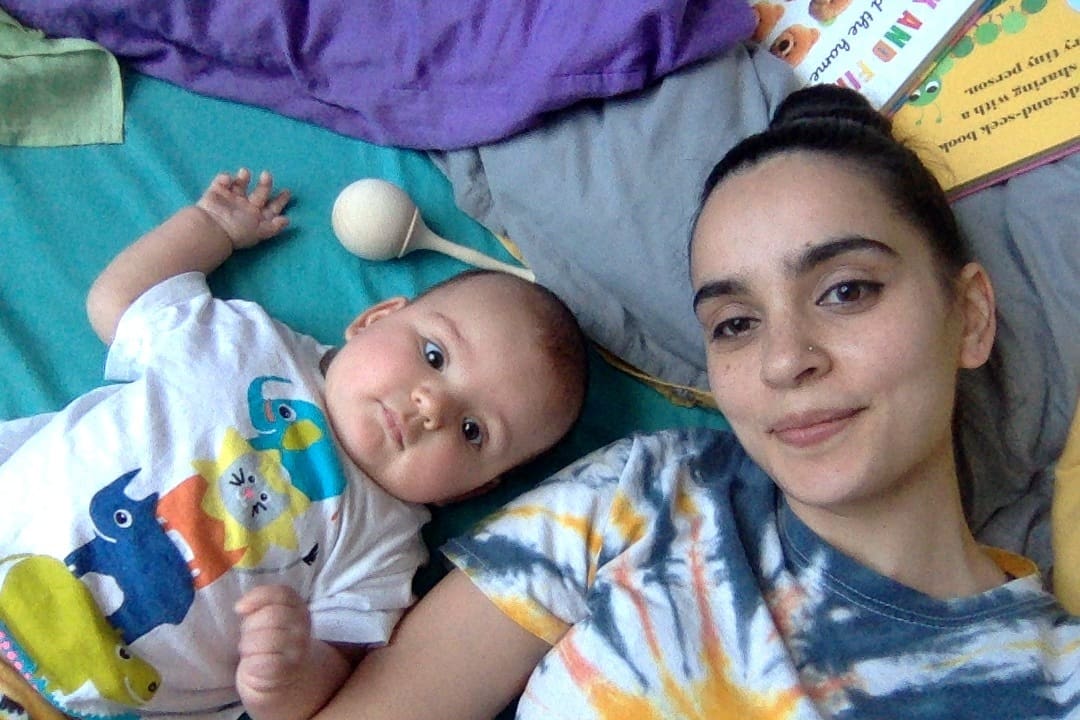
Naomi Bid
What does ‘Circular Economy’ mean to you?
‘A Circular Economy is moving away from a “linear” economy, where we take natural resources, make products out of them and then send them to landfills when we’re done. Instead, we design our products to be used and kept in circulation for much longer and designed with its ‘end of life’ in mind.’
What motivates you to develop an idea?
‘By reducing the amount of resources used from the natural world, and reducing waste, we deplete the Earth less, and in turn it will have a chance to heal. I want my day-to-day work to be directed towards something meaningful for the future health of the planet: work that in the long run, by reshaping the way we do business as a society, will allow the Earth to heal.’
Why did you join The Circular Start Up programme?
I want to start a business with circular economy principles, I came across this programme and thought that’s perfect!

Alexander Rose
What does ‘Circular Economy’ mean to you?
‘For me, it’s a mindset more than anything else. It’s about being responsible for your consumption of key resources, aware of ways to give items you no longer need a second life, and finally, encouraging manufacturers to adopt practices that result in less waste and more responsible business practices.’
What motivates you to develop an idea?
‘My idea CartridgeBuyBack (website going live soon) is a CIC that will repurpose unused printer supplies and use the profits to support a range of criminal justice charities in the UK. I want to stop perfectly useable products going to landfills and stem wasted human potential by supporting prison-leavers with employment support. Let me know what you think about my idea as I am a firm believer that great questions/feedback leads to the best solutions.’
Why did you join The Circular Start Up programme?
‘As a solo entrepreneur, it is easy for one’s mind to become an echo chamber with no external input to challenge your idea and underlying assumptions. The amount of peer support the Circular Startup offers is definitely something I know I need before stepping out fully with my big idea. More broadly, to become part of a community of like-minded people who are passionate about solutions that help society become less resource-intensive and more inclusive of others. The world is a big place, therefore trying to bring about these changes on my own feels counterintuitive, which is why I am delighted to be part of this programme and a growing community of change-makers in the reuse, recycle and repurpose agenda. ‘

Frances and Helena
What does ‘Circular Economy’ mean to you?
‘A system of living on our planet that reduces the need to degrade our precious environment by either using less resources to start with or using the resources that we do need to use as efficiently, fairly and responsibly as possible.’
What motivates you to develop an idea?
‘Our plan to grow microgreens in an urban setting means that hyper fresh nutrient rich food which is very easy to prepare and eat could offer a simple and cost effective way for many to improve their diets. There is lots of evidence that school children eating a healthy and nutritious diet can improve their mental and physical health and educational outcomes. We very much want to help by using an incredibly sustainable innovative agricultural method which limits GHGs and the use of chemicals in agriculture and saves millions of litres of water.’
Why did you join The Circular Start Up programme?
‘I knew of the incredible work Angie had done with the Feeding the City Start Up programme and the strong reputation that Impact Hub has around the world. We know that the programme will help us make our business better in many ways and that we will learn some very important skills along the way. We are very grateful for this support.’

Nanna Sandom
What does Circular Economy mean to you?
‘Ways to create and maintain jobs, revenue, and profits for organisations, focussing on utilising things in existence already, rather than extract new raw materials from the Earth. It is a mindset and philosophy which at the core has the mantra ‘Waste isn’t waste until it is waste’ and at every point seeks to extract as much lifetime value from each product, from the moment it is produced.’
What motivates you to develop an idea?
‘The UK has a particular problem, as it has an incredibly high consumption of the world’s resources through imports, and creates the corresponding waste. This is largely not being dealt within the UK, but exported to poorer nations, thus exacerbating the climate problems. There’s an opportunity to lead the way in innovation in this field. Exploring circular business models and initiatives provides the opportunity for innovative ideas to combat over-consumption, product under-utilisation, and waste management in a profitable manner to be tested and scaled.’
Why did you join The Circular Start Up programme?
‘Big problems require big solutions, and initiatives such as this tie directly into the UN Sustainable Goals. The ability to test my idea in a framework and in the right support network of like-minded entrepreneurs and professional advisors is priceless. Recognising that you cannot change the world on your own and having sounding boards and encouragement to keep going is incredibly important to me – it is about knowing that you need help and that what you think is a great idea may need tweaking and changing to fit where the market is right now, and having the resource and support to do that is what excited me about joining.’

Chiho Sharp
What does ‘Circular Economy’ mean to you?
‘We create an ever-lasting sustainable system to use our resources and practice 6Rs, 3Rs/Reduce, Reuse, Recycle + 3Rs/Rationalise, Repair, Redesign. The first 3Rs have been around for a long time, but without the other 3, it is not complete. The demand from the public has to increase for the manufacturers to produce products that are reusable, recyclable, and repairable with redesigning. If consumers are not aware of 6Rs, it’s less effective. Also, products made based on 6R principles have to be widely available and affordable for the public.’
What motivates you to develop an idea?
‘As a mother of three who has been well informed about the climate change at school, I have been supporting them to take part in protests, making a film, starting a litter picking project and involving in Green Youth Board. I also work closely with local schools and families and noticed that there are so many things that we can do to change the way we do things.’
Why did you join The Circular Start Up programme?
I joined this program to do my bit. I believe everyone can contribute something to make this world a better place to live. It will be nice to hear other people’s ideas and find out more cutting-edge information in the course materials. Also, it’ll be nice to work with like-minded and proactive people.’

Beril Oturmazer
Why did you join The Circular Start Up programme?
‘I can develop my idea into a business model and get the right direction from one of the best possible networks. After joining the ideation session, I realised that the approach from the programme managers will help us to get the most of it. For people who think about climate change solutions all the time, ideas come to our minds several times and it can be hard to take the initial step. I am highly motivated to develop my idea under The Circular Startup since I believe circular economy solutions have a holistic approach to include all steps of any process. Besides, being under the same umbrella with participants who strive for a better world is inspiratory’.

Keisha Hollands
What does ‘Circular Economy’ mean to you?
‘Doing all that you can to be conscious and proactive in reducing waste and harm to the environment.’
What motivates you to develop an idea?
‘Passion for bees and how important they are to our existence.’
Why did you join The Circular Start Up programme?
‘Because it is an amazing opportunity from an amazing organization!’
ASSETS (Assisting Social Enterprises to Succeed) is an innovative business support programme for social enterprises in the construction industry supply chain who aim to scale their operations and secure larger contracts.
Instigated from Social Enterprise UK’s Buy Social Corporate Challenge, Impact Hub King’s Cross has once again partnered with Wates to deliver the second edition of this business mentoring programme. The shared goal is to support social and environmental impact-driven suppliers to improve readiness to scale up and successfully compete UK-wide. We hope more companies in this challenge can help social enterprises grow.
Meet the 5 businesses on the 2022 programme:
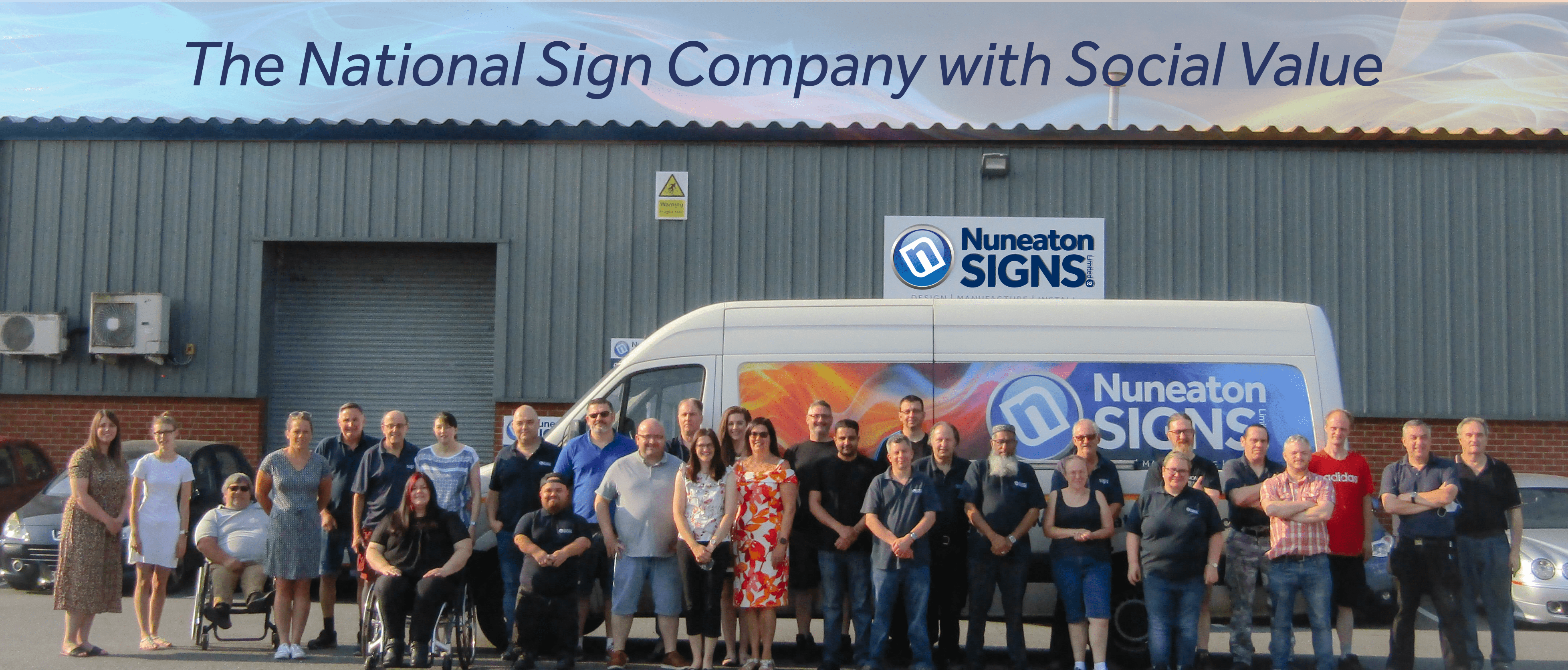
Nuneaton Signs
Provides meaningful employment and training for people with disabilities through the manufacture and sale of signs.

ABC Life Support
Delivers physical and mental health first aid training to companies and individuals across the UK. They offer statutory first aid training for the workplace and use the profit to offer the training to those who would not otherwise access it.

Morgan Developments
Building economic justice for disenfranchised communities in the UK. Their vision is to become a well-known, major fit-out specialist social enterprise operating across the UK, with 75% of profits reinvested. They deliver their social mission in two keyways. Firstly, by actively building training and apprenticeship opportunities for disadvantaged young people in the UK. Secondly, by harnessing spend power and working only with BAME-led supply chain.
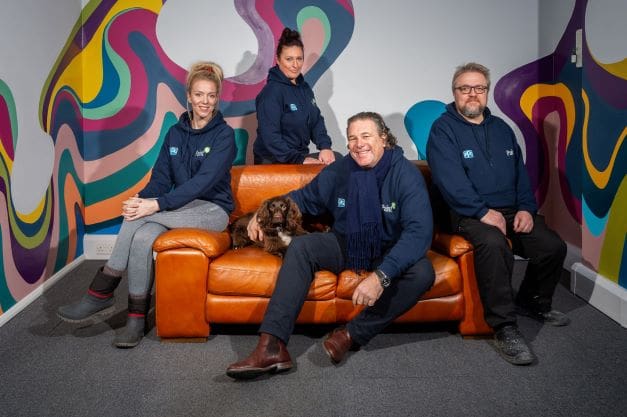
Paint360
Recycle and re-engineer unwanted paint and paint pots destined for landfill or incineration, employing young people with barriers to employment.
Greenstream Flooring
Circular economy principles underpin all of the work they do, and to date their main trading income has derived from services based on extending the life cycle of flooring of commercial flooring for maximum social and environmental benefit.
Want to make entrepreneurship more inclusive and sustainable? Explore how you could partner with us to deliver impactful projects like these.
How can social enterprises and corporates work together to create greater social impact? Find out how we achieved this through our recent programme delivery.
Impact Hub King’s Cross has supported social entrepreneurs for the last 15 years and delivered business support programmes to 700+ entrepreneurs in the last 6 years.
Meanwhile, Wates is a leader in the construction sector. In order to achieve greater impact and encourage more environmental and social business in this industry, Wates’ ‘Creating Opportunities Social Value’ strategy set an objective to support 5 social enterprises to achieve national scale by 2025.
Last year we decided to combine our knowledge and experience by partnering together. This led to the creation of ASSETS (Assisting Social Entrepreneurs to Succeed), an innovative 6-month programme that supports social enterprises in the construction industry supply chain to scale their operations and impact.
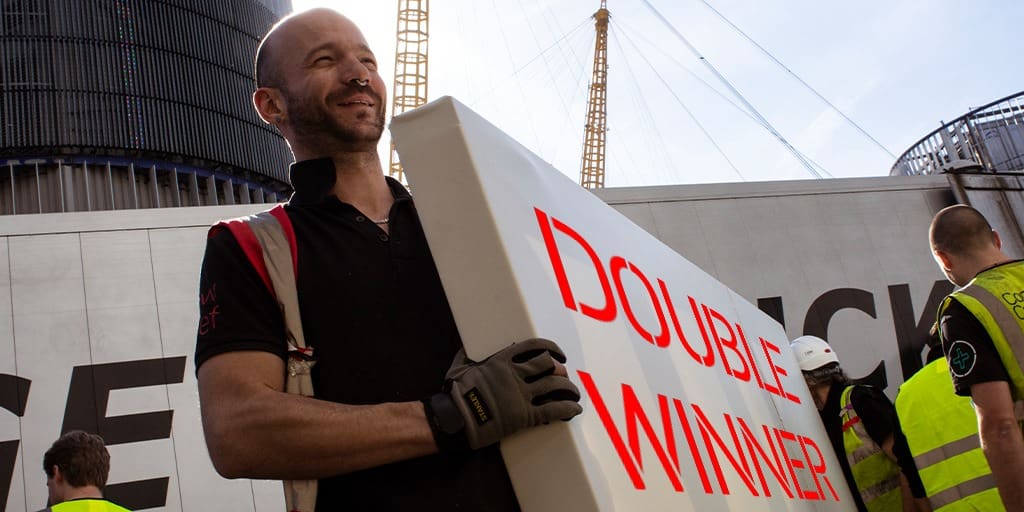
The pilot programme ran in the second half of 2021 and supported 5 social enterprises from across the UK. All of these businesses had an inclusion focus: from offering opportunities to unemployed groups, to providing essential services to those who cannot afford them.
Over the course of the programme, the cohort had access to a business diagnostic and development plan, mentors, expert-led workshops, peer support, and a global impact-driven network.
We’re pleased to be able to share the goals and outcomes of the programme in the ASSETS Impact Report 2021.
Participating businesses were able to improve their business skills and strategic decision-making, make useful contacts, and think about their entrepreneurial wellbeing and resilience through the programme. Wates employees also had the opportunity to engage as mentors. The experience helped them understand their own skill sets and increase their confidence.
Overall, the success of the partnership has contributed to Wates’ wider social value goals, through Social Enterprise UK’s Buy Social Corporate Challenge.
We’re pleased to be able to run a second edition of the programme, which has been developed using the learnings from the pilot.
Are you a corporate looking to increase your positive impact? Learn more on our partnerships page and get in touch today to speak to our team.
Joining Impact Hub King’s Cross in 2021, Eva Lagarde and her colleague Saffron Gupta form the team at Re/sources to make the beauty industry more sustainable. They get together at our coworking space on a weekly basis to collaborate under the skylight rooftop, surrounded by other impact-driven entrepreneurs.
On International Women’s Day, we caught up with Eva to learn more about starting her business and working in sustainability:
Q: What’s your mission, and what led you to this?

- in the beauty industry – to succeed in their job and build better products. I give them content that they can use to face their management and back up their business decisions.
- overall – as the beauty industry mostly serves women. It’s time that we offer them better products for themselves and the planet. And also, brands can educate them to make better choices for themselves.
We talk a lot about the value of working in a like-minded community to achieve positive impact – but what exactly does that look like? We spoke to Birda‘s Co-Founder Natalie White about how the team transformed their business through our community connections.
Since growing up in South Africa and the English countryside respectively, husband and wife John and Natalie have always shared a big passion for wildlife. They wanted to extend this with others, while providing people the chance to get in touch with the natural world.
“At the end of the day, you need to care about something in order to want to protect it. And if you haven’t experienced it, why should you care about it?”
Taking flight with an idea
In 2012, the South Africa-based couple started a wildlife platform where users could log and share sightseeings from game reserves within a community and social space.
However, it became apparent that the product was a bit too niche, so they later pivoted to bird watching. The new social network platform, named Chirp, could be accessible anywhere by anyone. “There are no real barriers to it. I think it’s recorded that between 50 and 60 million people in the States alone would consider themselves to be a birdwatcher. So, yeah, it’s a much bigger market.”
After securing funding and moving to the UK in the summer of 2020, they were joined by a new team member Dom, who helped them pivot once again. The product concept was developed beyond a communication platform to become more like the Strava of birdwatching.
“We managed to rebuild a product from scratch in the space of about six to nine months, which was pretty good going, really.”
Migrating Identity
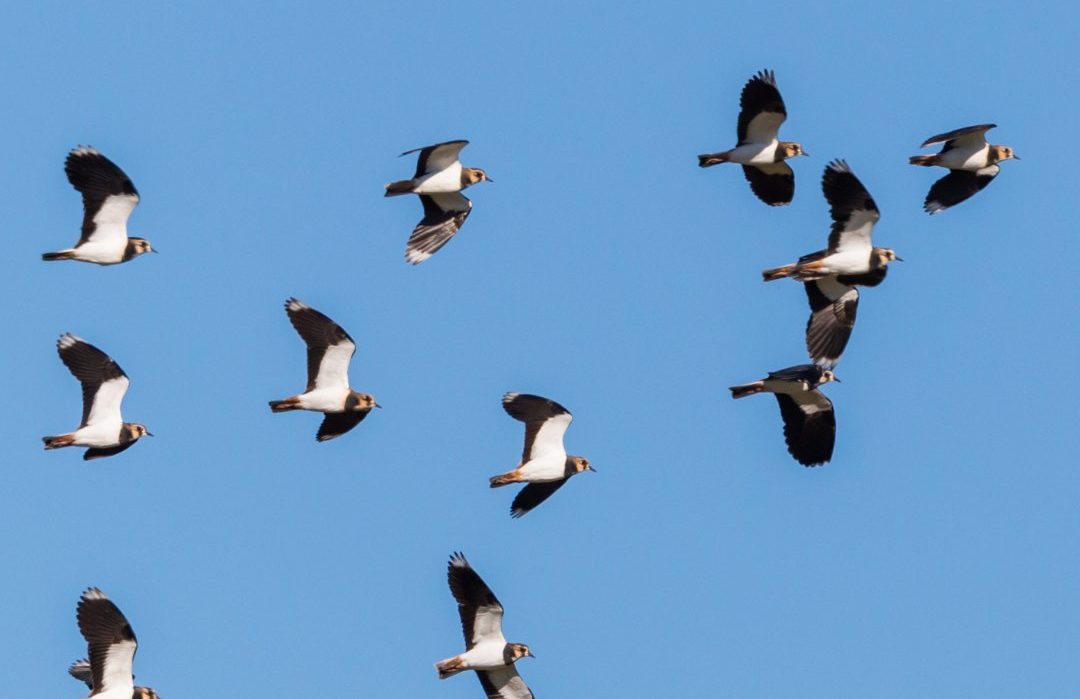
By 2021 Natalie and John built a nest for their team at our coworking space. Here, they were able to find a community with shared values: making a positive impact, but also helping people connect with one another.
In the same year, however, the business encountered a copyright roadblock. The name Chirp was already quite crowded not just in the birdwatching space, but globally, so they decided to call themselves something different. After much research, work and hard decisions, they set on Birda.
Given their small size and that they had just rebuilt their product, they saw this as an opportunity to apply a clean slate on the brand, rather than trying to shoehorn something that already existed.
All they had done on the rebrand was the bare bones of a logo – so they knew that there was quite a lot more to do.
Finding a good egg
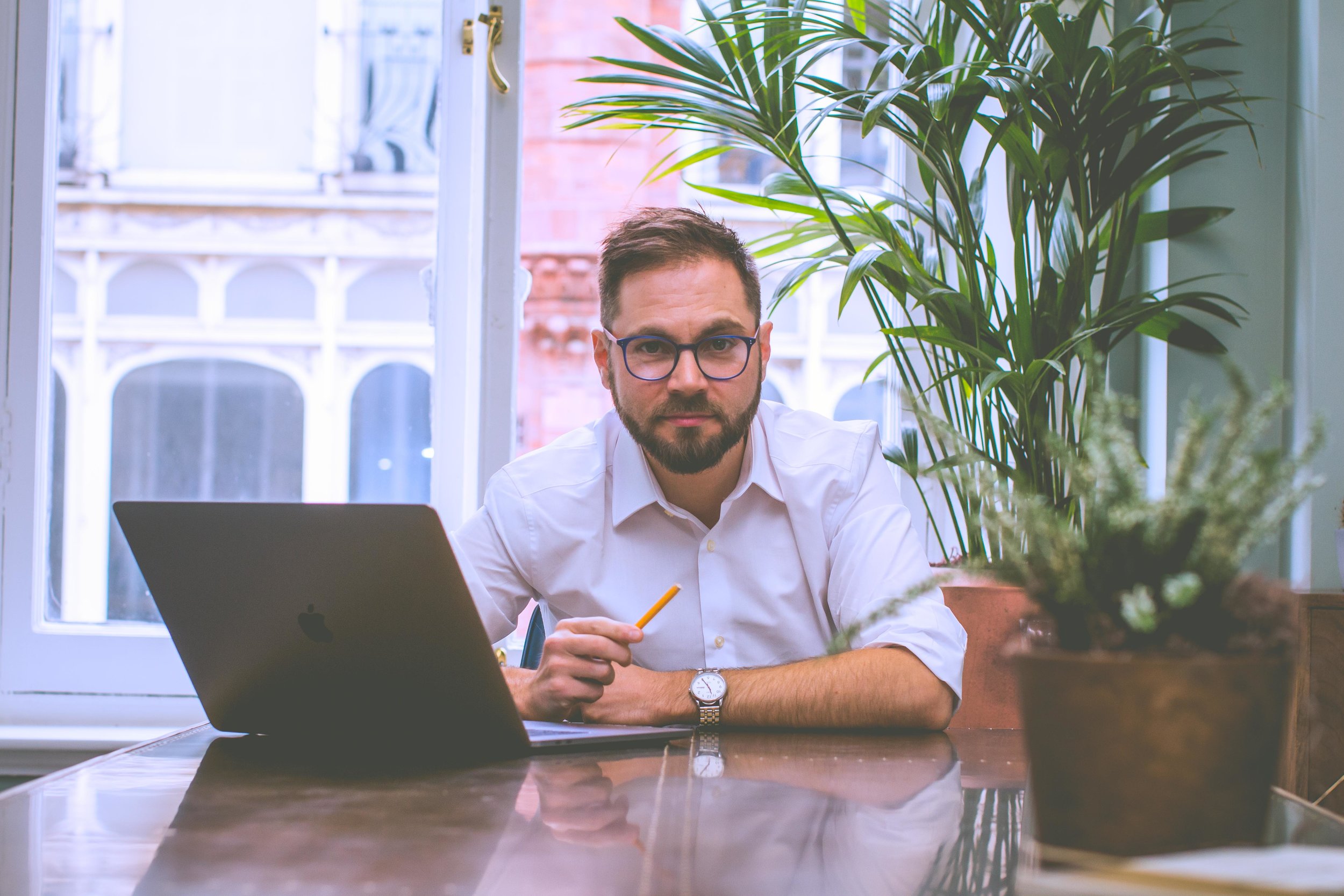
One day, John saw that one of Impact Hub King’s Cross’ business experts from the network was offering members a day of free 1:1 brand clinics. Noticing that he focused on impact-driven businesses, they thought this could be a good match and booked themselves in.
In the initial free call with Will Saunders from Good Will Studios, they really hit it off. As such, the team decided to go beyond the first conversation by engaging in Will’s full brand development plan. Although it seemed like quite a commitment going through all the workshops, it was worth it. Beyond putting together a brand package and useful materials, the founding team was able to become highly aligned on what they’re here to do:
“On our journey we’ve learned how to identify and talk about all these underlying feelings that we had, really searching out the why, the mission, the purpose, and bringing that all together. Deep down we always knew what it was, but weren’t necessarily able to communicate it very well. I think it’s always been there, but now we’ve been able to really make it part of what we’re doing at Birda, which is great.”
The benefit of doing business with a like-minded entrepreneur goes beyond the work itself:
“What’s great is that he cares about what we’re doing – the mission and purpose of the business.”
The good news is that Will is just as much of a fan of our members. “Working with Natalie, John, and the Birda team was an absolute joy. I always enjoy meeting members of the Impact Hub Kings Cross community as I get a real sense of purpose and ambition – they’re always keen to make a real change through their business and are not satisfied with the status quo. They are doing something to make the world a better place, and I find that really inspiring.”
Birda is still working with Will today and see themselves having very much a long term working relationship. “The great thing is that he really understands the brand because he’s worked through it all with us. So when you’re giving him new work to do, it’s so much easier and time-saving.” They’ve also worked with Will’s associates to do their copywriting.
“We’re now seeing some great results as they’ve launched their birdwatching app and are building a really engaged community of everyday nature-curious people who want to connect with the outdoors”’ shares Will, reflecting on the outcomes of the collaboration.
Looking Ahead – the sky’s the limit
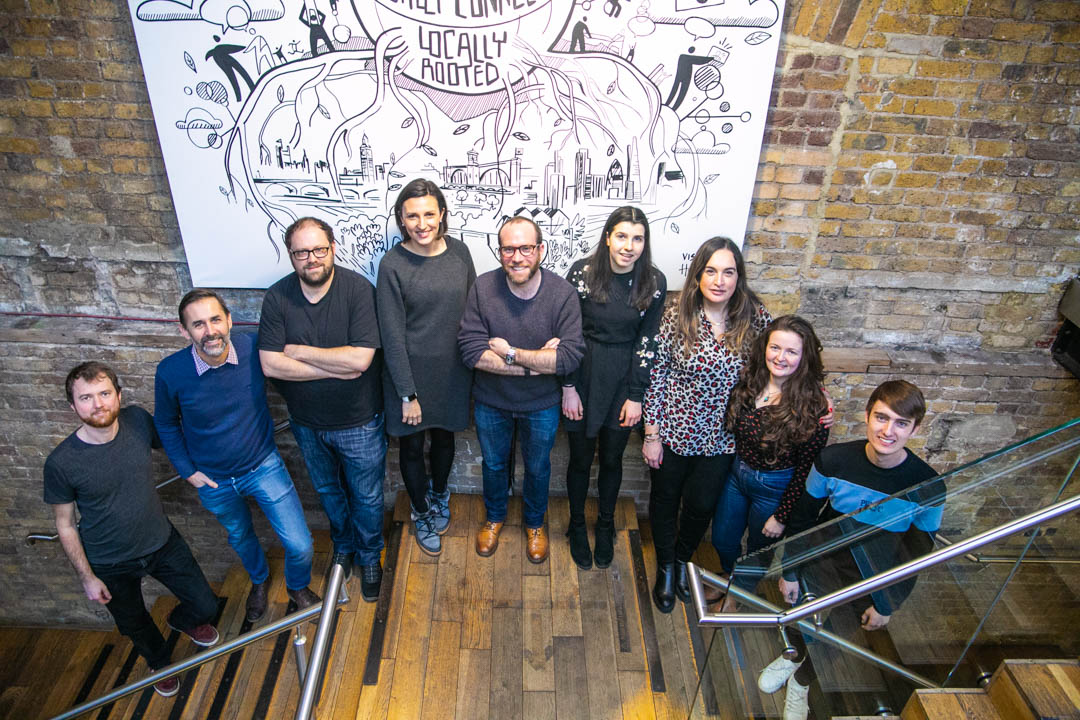
Natalie and John have always had global ambitions for their business. To achieve this however, they’re taking a staged rollout approach, focusing on the UK first. They’re launching soon in South Africa, and later this year plan to reach the States and then other countries will follow on.
During this final stage of pivoting, they also expanded their team significantly. “We’ve basically gone from just being John and I to a team of nine. And, we will be hiring again this year.”
Will is just as optimistic about their future:
“I know that the Birda team are really going places. I look forward to supporting them as they continue to build their brand, scale their business, and make a positive impact on nature by inspiring everyday people to learn about and, ultimately, fight to protect it”.
So, how do Natalie and John reflect on their entrepreneurial journey so far?
If there’s one thing they have learned, it’s that ideas evolve. “You can’t really put a price on the experience that John and I have had over the last nine to ten years. It’s been a bit of a whirlwind of a few years, but really, really exciting.”
From a personal perspective, Natalie also acknowledges that since having kids it’s been a real driving force behind what she’s doing. “I’ve been feeling very much the issues around the state of the planet, and what are they going to get to experience as they grow up in terms of exposure to nature and wildlife.”
If you want to learn more about how Birda connects people and nature, visit their website.
Are you inspired to connect with impact-driven businesses and experts? Discover our coworking packages and life as a member.
Islington, February 2022 – Impact Hub King’s Cross has launched a new fully-funded programme that supports Londoners from underserved communities to launch businesses with a circular economy model.
- The Circular Start Up is unique in joining-up climate, inclusion and entrepreneurship, to address the challenges of consumption and economic disparity.
- With support from JPMorgan Chase & Co., the programme will run for 18 months to help participants turn their sustainable ideas into reality.
The climate and inclusion challenge
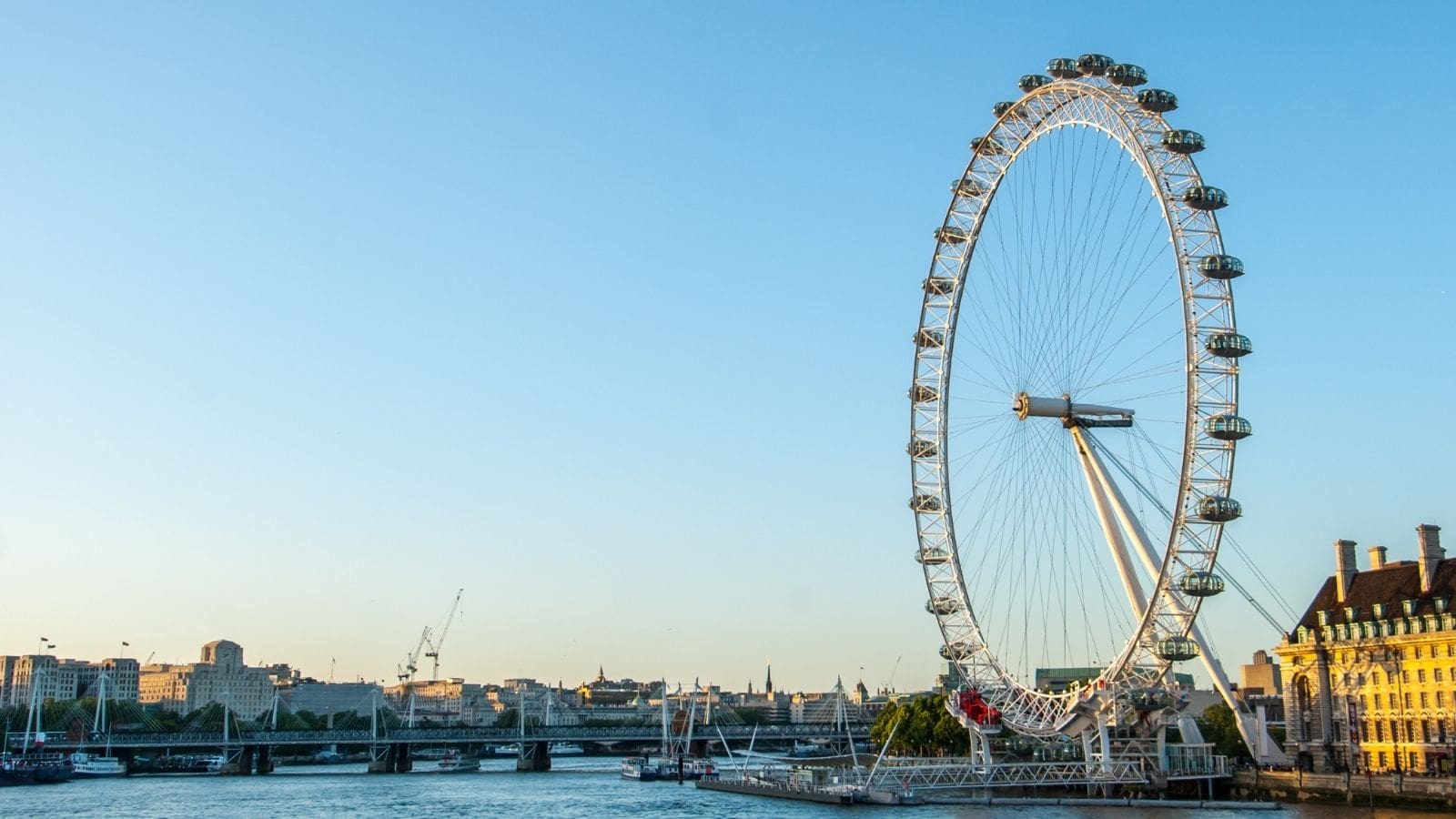
In London alone, 7m tonnes of waste is produced from homes, public buildings, and businesses each year. Of this, only 52 per cent is currently recycled and performance has stagnated.
At the same time, the capital city still lacks diversity in business leadership. The Federation of Small Businesses recently published research showing that only 15% of SMEs are women-led and less than 5% are led by a majority Black and minority ethnic leadership team (compared to the 42% of London working population).
Finally, the sustainable business sector is still relatively new. 37% of UK Net Zero companies are at an early stage with the majority located in London, highlighting the demand for wider support for new start-ups.
Our startup solution
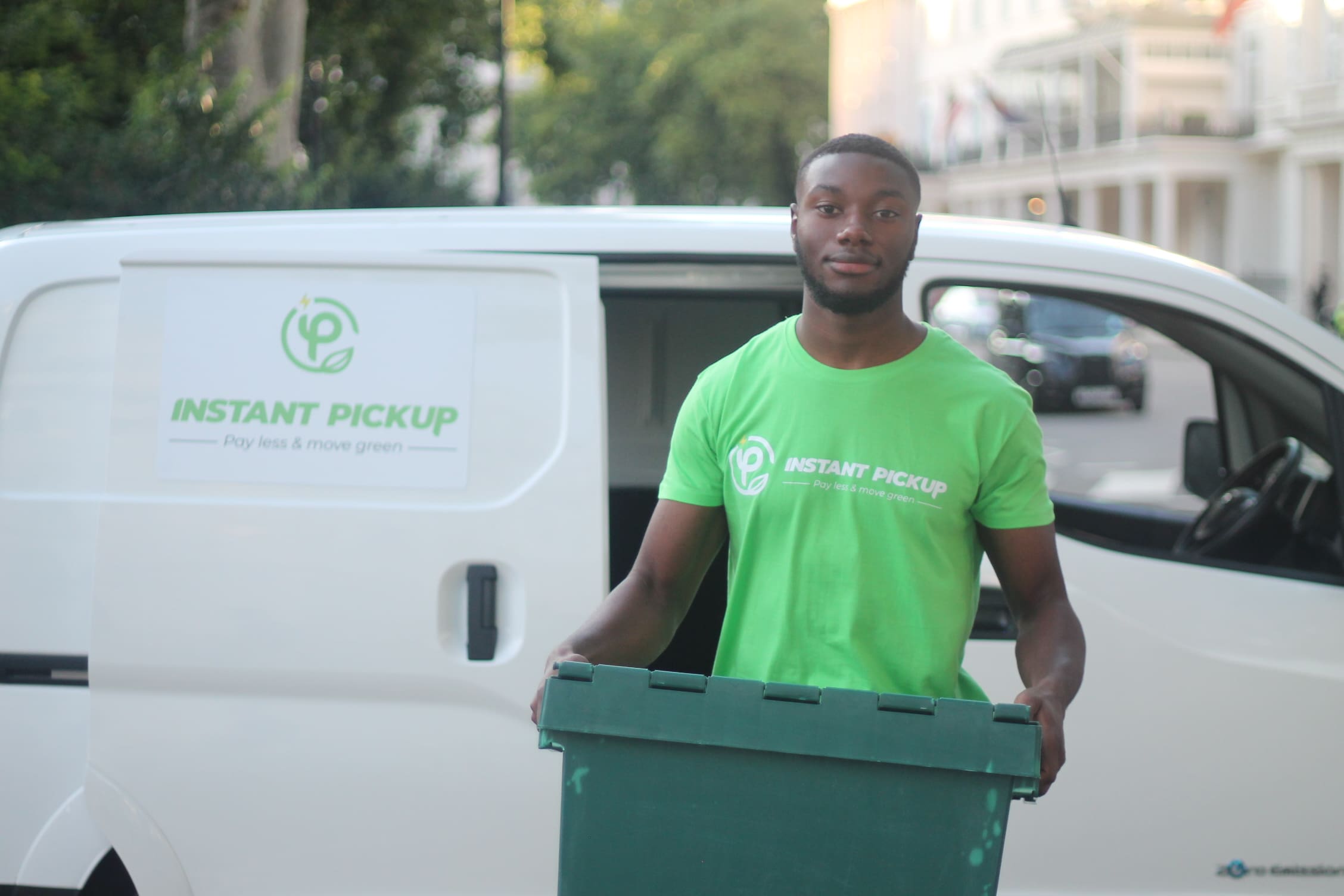
Instant Pickup, a sustainable startup and participant of Impact Hub King’s Cross’ New Roots programme 2020.
The Circular Start Up is unique in addressing all three of these climate, social and enterprise challenges. Particularly encouraging applications from underserved groups, this free programme provides a launchpad for individuals to start a business and make their circular solutions a reality.
Over 18 months, participants can apply their entrepreneurial spirit to build the skills, confidence and networks needed in circular economy business, with support from mentors, peers and business experts.
“Both climate change and inclusion, as well as their intersection, have become a key focus for Impact Hub King’s Cross. Our partnership with JP Morgan Chase & Co. has provided a unique opportunity to support aspiring social entrepreneurs from London currently not included in the circular economy ecosystem” – Angelica Santodomingo, Senior Programmes Manager at Impact Hub King’s Cross.
J.P. Morgan is committed to applying capital, data, expertise and other resources to help address climate change and promote long-term, innovative solutions for a more sustainable future. This philanthropic investment helps to advance the transition to a low-carbon economy and builds upon the firm’s broader commitment to environmental sustainability. The firm has set a target to finance and facilitate $2.5 trillion over the next 10 years to address climate change and contribute to sustainable development and has also announced a Paris-aligned financing commitment and sector-specific emissions reductions targets and methodology.
‘The circular economy gives us a tool to tackle climate change and biodiversity loss together, while generating opportunities for economic growth that also benefit society. We are excited to support Impact Hub King’s Cross in their incubator to help entrepreneurial Londoners launch and grow their businesses active in the circular and green economies,” said Oliver Gregson, Region Head UK, Channel Islands & Ireland for J.P. Morgan Private Bank.
Applications open on Friday 4 February, and the deadline to apply is 13 March 2022.
What do we mean by ‘circular economy’?
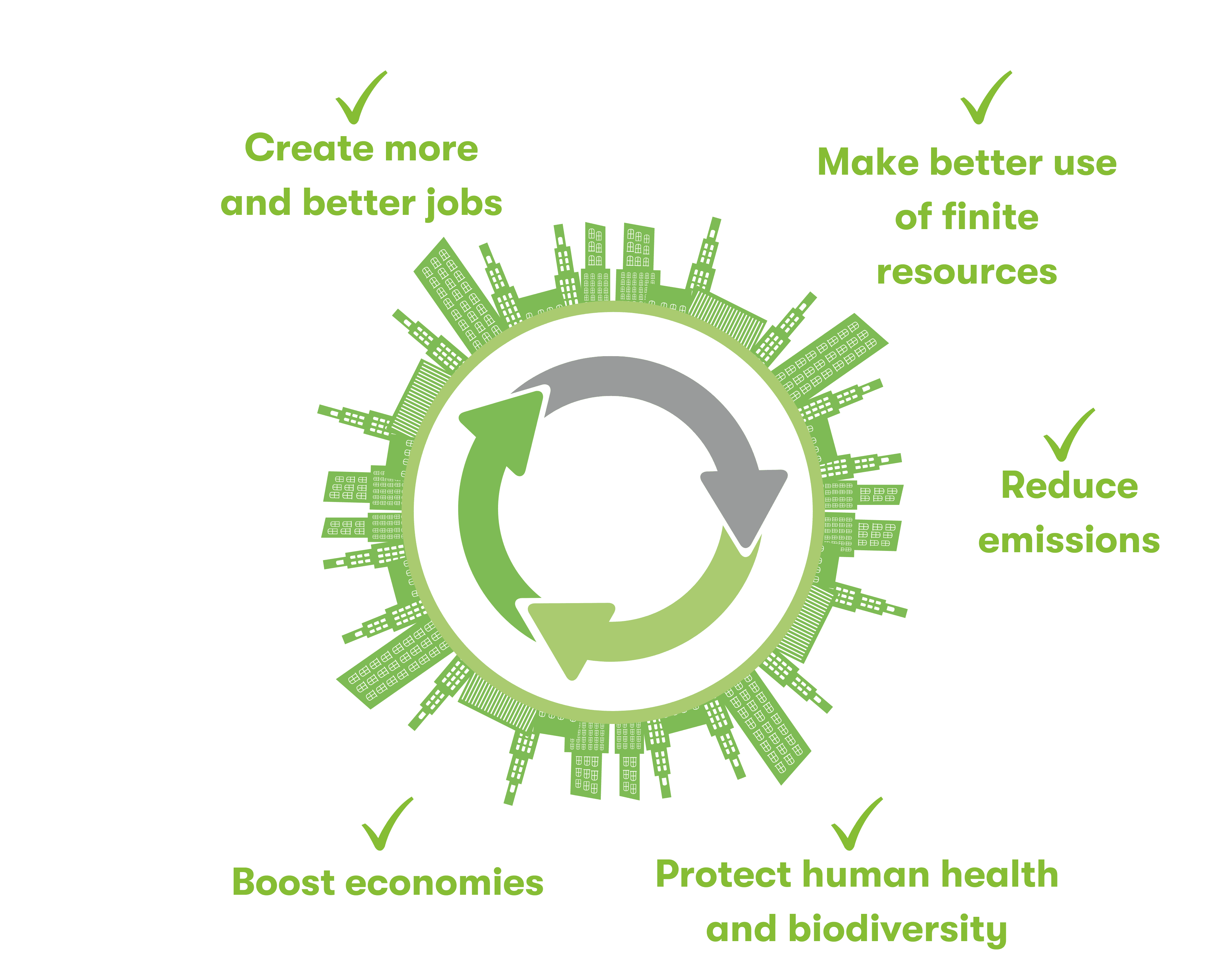
Key benefits identified of the circular economy.
The world operates in a linear economic model that takes, makes, uses, and wastes in a way that’s not sustainable nor economical. It is estimated that by 2050, global demand for resources will triple to US$130 billion tons annually, which will then overuse earth’s capacity by more than 400%. Yet, only 8.6% of the global economy is circular today (source: https://privatebank.jpmorgan.com/gl/en/insights/investing/in-the-loop-why-consider-a-circular-economy).
Circular economy is a powerful model of principles and activities that aim to keep the value of resources, materials, components, and products for as long as possible in the economy. The circular model aims to redefine growth, focusing on positive society-wide benefits that build economic, natural, and social capital.
Put in practical terms, this could be creating a rental service for household tools, or repurposing unused textiles into sellable products.
Pioneers for Impact–Driven Business
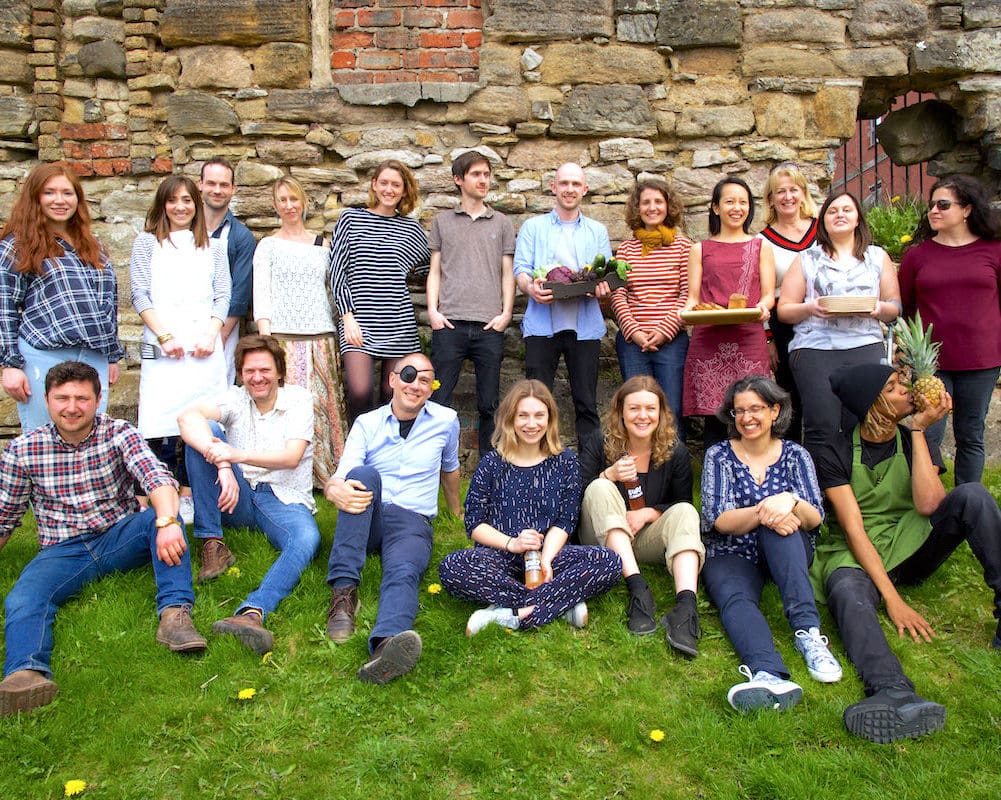
The Feeding the City Start Up cohort 2018.
For nearly 15 years, Impact Hub King’s Cross has been catalysing entrepreneurial action for a fair and sustainable future. Alongside an impact-driven coworking space in Central London, it runs business support programmes for ethical and diverse entrepreneurs. Feeding the City has run for 5 years to help sustainable food businesses start and grow, while New Roots offers mentorship and peer-support local entrepreneurs from minority ethinic backgrounds.
Now, it’s ready to catalyse the circular economy – and bring everyone with them.
Learn more about the Circular Start Up and find out how you can join as a participant or partner.
